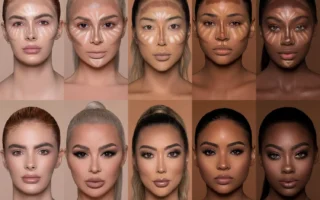When we think of acne, we often associate it with the awkward teenage years. However, for many adults, the struggle with acne doesn’t magically disappear once we enter adulthood. Adult acne is a reality for numerous individuals, impacting not only their physical appearance but also their self-confidence. In this blog post, we’ll explore the causes, treatment options, and share some tips to help you embrace your skin’s unique journey.
The Surprising Prevalence of Adult Acne:
Contrary to popular belief, adult acne is quite common. It’s estimated that up to 30% of adults, particularly women, experience acne at some point in their adult lives. This condition can manifest differently than the classic teenage acne, often appearing as more persistent, inflammatory lesions, such as cysts and nodules.
Understanding the Causes:
While the underlying mechanisms of adult acne are similar to those of adolescent acne, there are some key differences in the contributing factors:
- Hormones: Hormonal fluctuations, particularly in women, play a significant role in adult acne. Hormonal imbalances, such as those occurring during the menstrual cycle, pregnancy, or perimenopause, can trigger breakouts.
- Stress: The modern adult lifestyle can be stressful, and chronic stress can impact your skin health. Stress triggers the release of hormones that may increase oil production and inflammation, leading to acne.
- Diet and Lifestyle: Poor dietary choices, lack of sleep, and exposure to environmental pollutants can influence the health of your skin. A diet high in sugar and dairy, for example, may exacerbate acne for some individuals.
- Genetics: Family history can be a factor. If your parents or siblings struggled with acne, you might be more prone to it as well.
- Skincare Products: Using the wrong skincare products can aggravate acne. Opt for non-comedogenic and oil-free products, and avoid harsh scrubs that can irritate your skin.
Effective Treatment Options:
The good news is that there are numerous treatment options available for adult acne:
- Topical Treatments: Over-the-counter and prescription-strength topical treatments containing ingredients like salicylic acid, benzoyl peroxide, or retinoids can help unclog pores and reduce inflammation.
- Oral Medications: In some cases, dermatologists may prescribe oral antibiotics, hormonal therapies (like birth control pills for women), or other medications to control acne.
- Professional Procedures: Dermatological procedures, including chemical peels, microdermabrasion, and laser therapy, can be effective in treating acne and minimizing scars.
- Lifestyle Changes: Adopting a healthy lifestyle by eating a balanced diet, staying hydrated, getting sufficient sleep, and managing stress can have a positive impact on your skin’s health.
Embracing Your Skin’s Journey:
While dealing with adult acne can be challenging, it’s essential to maintain a positive outlook:
- Confidence: Remember that your worth isn’t defined by your skin’s appearance. Embrace your uniqueness and be confident in who you are.
- Self-Care: Practice a consistent skincare routine using products suitable for your skin type. Be gentle with your skin and avoid harsh treatments that can exacerbate the issue.
- Patience: Acne treatment takes time. Stay consistent with your chosen treatment plan and remain patient; results will come.
- Professional Guidance: If your acne is severe or persistent, consult a dermatologist. They can provide personalized advice and treatment options tailored to your skin’s needs.
Conclusion:
Adult acne is a journey that many individuals face, but with the right knowledge, treatment, and self-love, you can overcome its challenges. Remember that you’re not alone, and your skin’s uniqueness is something to be celebrated. Stay positive, take care of yourself, and reach out to professionals when needed – your skin’s health is a valuable part of your overall well-being.




